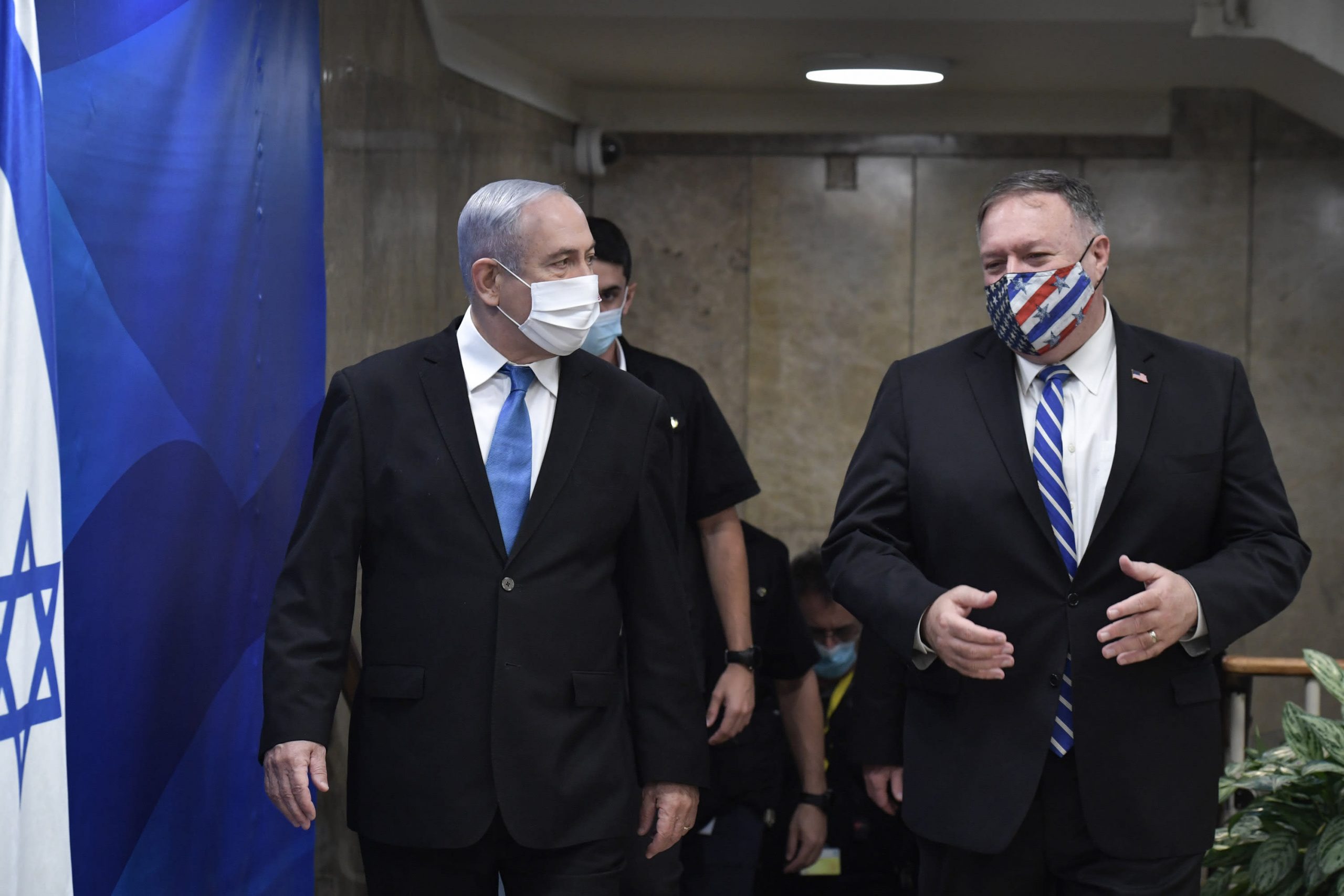
Israeli Prime Minister Benjamin Netanyahu (L) and US Secretary of State Mike Pompeo (R) are seen together prior to their meeting at the Prime Ministry Office in West Jerusalem on August 24, 2020.
Kobi Gideon | GPO | Handout | Anadolu Agency via Getty Images
Israel may not accept a potential American deal to sell F-35 fighter jets to the United Arab Emirates, spiking tensions just days after a historic Arab-Israeli agreement.
“This deal did not include Israel’s acceptance of any arms deal,” Prime Minister Benjamin Netanyahu said on Monday, suggesting he’s likely to push back on the long-rumored transaction.
It comes after Axios first reported the UAE canceled a planned trilateral meeting with the U.S. and Israel last Friday in order to send a message to Netanyahu over his opposition to the deal. The Axios report said an F-35 transaction was a top priority for the UAE and linked to its normalization accord with Israel.
Previous UAE requests to purchase the sophisticated fighter planes have been stymied by a long-standing U.S mandate that ensures Israel maintains a “qualitative military advantage” in the Middle East.
“The United States stood by that commitment, and I have no doubt that it will continue to do so,” Netanyahu said. The prime minister was speaking alongside U.S. Secretary of State Mike Pompeo, who was in Israel as part of a week-long tour of the region to drum up additional support for the accord.
“We will continue to honor that,” Pompeo told reporters. “But we also have a 20-plus year security relationship with the United Arab Emirates, where we have provided them with technical assistance and military assistance,” he said, adding that the U.S. will deliver the UAE “the equipment they need to secure and defend their own people.”
Any U.S. decision to push ahead with an arms sale to the UAE will likely face pushback in Congress and on the ground in Israel, which is wary of losing its regional military edge.
“I think the United States Congress is going to have something to say about that and is going to be pretty skeptical about such a sale,” Former U.S. Ambassador Wendy Sherman told CNBC on Monday.
Sherman served as undersecretary of state for political affairs in the Obama administration and was the lead U.S. negotiator on the 2015 nuclear deal, known as the Joint Comprehensive Plan of Action or JCPOA.
“I think this is a good thing that they have made peace with Israel, but I’m quite concerned about any kind of sale of the F-35 to countries,” Sherman said, suggesting that a move to sell the fighter could alter the military balance in the Middle East and worsen ongoing conflicts in places like Syria and Yemen.
“Much of this is meant to be a bulwark against Iran, but I think in the short run, it’s not going to achieve that goal,” she added.
Iranian threat takes central role in discussions
The fighter jet sale, which has been under discussion for several years, is aimed at bolstering the UAE’s capability to defend itself from Iran; long viewed as a regional aggressor and state sponsor of terrorism by both the United States and Israel.
Talks on the sale seem to have grown in importance after the United Nations Security Council rejected a U.S. bid to extend a 13-year arms embargo on Iran.
The U.S. described the move as “inexcusable” and is now attempting to launch a so-called “snap back” mechanism to restore all U.N. sanctions on Iran.
“I think it was a mistake for the Trump administration to approach the resolution in the way they did,” Sherman said. “What they’re really trying to do here is destroy the JCPOA once and for all,” she added.
“I think this will end with a whimper, not a bang. The U.S. won’t be able to pull this off,” Sherman said.
The U.S. pulled out of the Obama-era deal in May 2018, opting to use direct sanctions under its “maximum pressure campaign” as a means of deterrent and tool of leverage against the regime.




